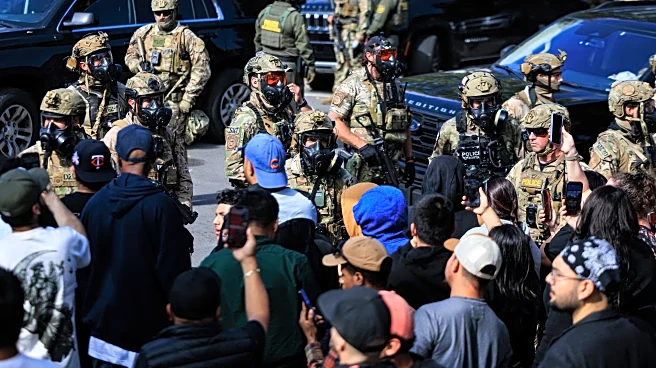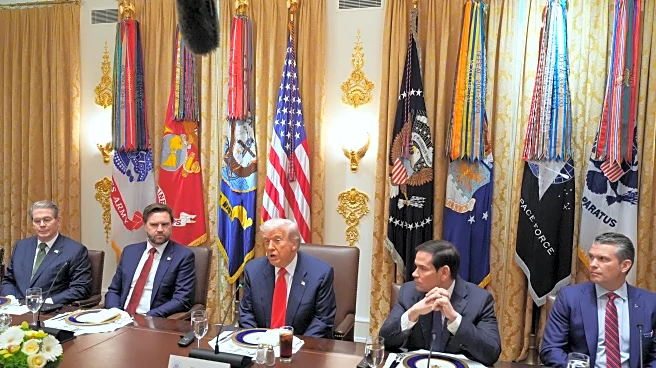What's Happening?
Chief Judge Timothy Evans of the Cook County Circuit Court has issued an order prohibiting warrantless civil arrests at Chicago-area courthouses. This decision reaffirms the common law privilege against
civil arrest while attending court, which is considered essential to the court's authority and function. The order was prompted by concerns from the Cook County Public Defender's office and various activist groups, who argued that Immigration and Customs Enforcement activities have been disrupting courthouse operations. The order applies to any arrests made without a judicial warrant or order and covers Cook County courthouses, as well as adjacent public areas such as driveways, sidewalks, and parking lots.
Why It's Important?
The order is significant as it addresses the impact of federal immigration enforcement on local judicial processes. By prohibiting warrantless arrests, the order aims to ensure that defendants, witnesses, and other parties can attend court without fear of detention. This move is expected to enhance access to justice and due process, particularly for immigrant communities who may be disproportionately affected by such enforcement actions. The decision reflects ongoing tensions between local jurisdictions and federal immigration policies, highlighting the need for clear guidelines to protect court operations and the rights of individuals involved.
What's Next?
The order is effective immediately, and its implementation will likely be monitored by legal and advocacy groups to ensure compliance. It may prompt further discussions or legal challenges regarding the balance between immigration enforcement and judicial independence. Stakeholders, including local government officials and immigrant rights organizations, may seek to expand similar protections to other jurisdictions facing similar issues.
Beyond the Headlines
This development may influence broader legal and ethical debates about the role of immigration enforcement in public spaces and its impact on civil liberties. It could lead to increased advocacy for policies that protect vulnerable populations from unwarranted legal actions, fostering a more inclusive approach to justice.













